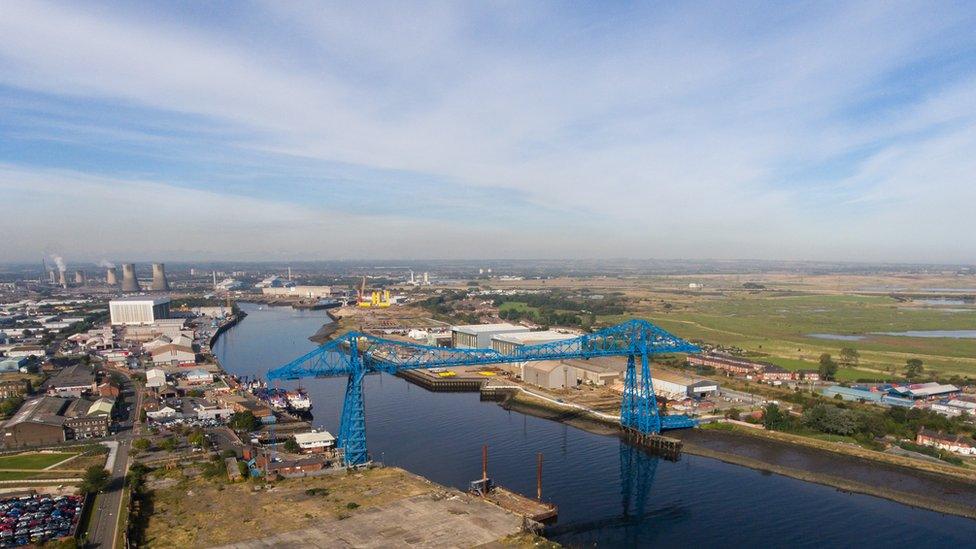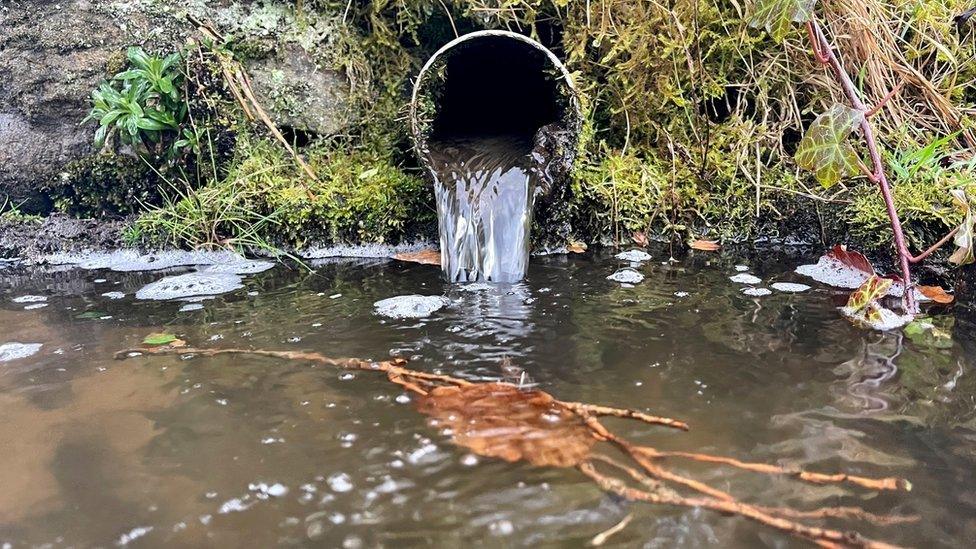River Tees: New rules aim to stop polluting developments
- Published

The changes hope to prevent any further pollution of the River Tees
Local councils will have to investigate if new developments could pollute the River Tees under new government rules.
Natural England will now require the four Teesside local authorities to assess how planning projects could affect nutrient levels in the river.
Increased levels of nitrogen and phosphorous can speed up plant growth and impact wildlife.
But Middlesbrough Council warned the new rules could cause delays in the planning process.
A spokesperson for the authority told the Local Democracy Reporting Service it would be an extra hoop for developers to jump through.
The council's planning committee meeting due to be held on Friday has been cancelled to allow time for the guidance to be reflected in the proposals, which it was informed of two weeks ago.
Full planning applications are expected to be submitted for new homes that are part of the Stainsby Country Park, the 500 properties at St Hilda's, and the Taylor Wimpey section of the Nunthorpe Grange development.

The impact of developments on the nutrient levels in the River Tees will have to be considered during the planning process
A spokesperson for Middlesbrough Council said: "The impacts of certain developments on the nutrient levels in the River Tees which could affect the special protection area will need to be considered as part of any planning application.
"As with all applications, a decision is not made until the scheme and its associated impacts have been sufficiently detailed, understood and mitigated where necessary."
Stockton Council, Hartlepool Council and Redcar and Cleveland Council are also among 42 authorities identified by the government which need to follow the new guidance, in addition to 32 councils which have been monitored since 2018.
'Long-running issues'
Natural England director of sustainable development Melanie Hughes said: "The sources of excess nutrients include sewage treatment works, septic tanks, livestock, arable farming and industrial processes.
"These are long-running issues spanning decades and will be complex to resolve.
"However, without resolution of these, we will continue to see a decline in water quality and detrimental effects on our environment."
The government has pledged a support fund of £100,000 for each catchment area affected by the changes.
The money will be used to hire staff to ensure the local authorities are joined up in their approaches.

Follow BBC North East & Cumbria on Twitter, external, Facebook, external and Instagram, external. Send your story ideas to northeastandcumbria@bbc.co.uk, external.
- Published31 March 2022

- Published13 January 2022

- Published17 July 2014
.jpg)